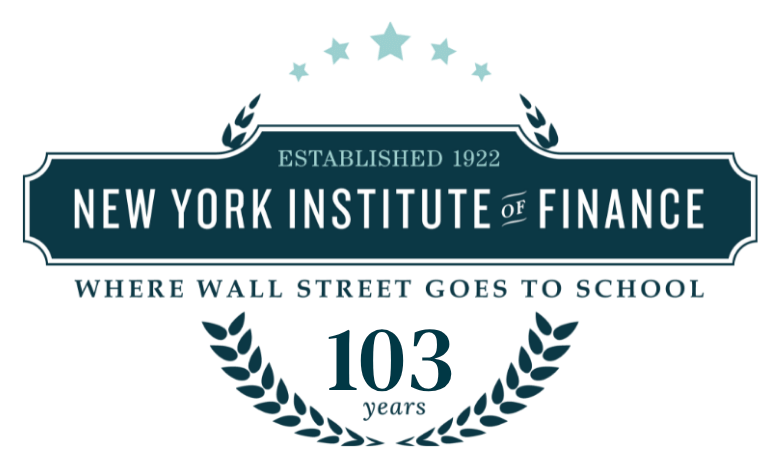Operational Risk and Resilience
New! Click here to download the Operational Risk and Resilience Course Brochure
This three-day hands-on program is designed to equip finance professionals with the knowledge, skills, and tools to manage operational risk effectively and build resilience in their organizations. The curriculum provides a comprehensive coverage of risk management, including strategic, financial, operational, and reputational risks, while also emphasizing the importance of organizational resilience to adapt and thrive in an ever-changing business environment. It also covers crisis management when risk management does not prove to be effective enough. Through a combination of presentations, engaging workshops, group discussions, practical exercises, and insightful case studies, this program offers an intensive learning experience designed for finance professionals seeking to strengthen their understanding of risk and build resilience in a dynamic business landscape.
Watch our Operational Risk and Resilience taster video to learn more about the course:
Module 1: Interactive Session: Operational Risk Management in Finance
- Overview of operational risk concepts, definitions, terminology, and frameworks
- Discussion on risk identification, assessment, and mitigation
- Real-world business case analysis: Systematic operational risk management process
- Group discussion and analysis, sharing industry experiences
Module 2: Interactive Workshop: Building Organizational Resilience
- Defining resilience and its importance in the financial sector
- Components and strategies for enhancing resilience, including proactive measures
- Hands-on exercises: Assessing risks and resilience using SPECTRA
- Group presentations and feedback
Module 3: Crisis Management: Realities and Playbook
- Crisis management concepts, principles, and stages
- Real-life examples and case studies of financial crises and their aftermath
- Comparing outcomes with and without resilience
- Developing a crisis management playbook: Key steps and considerations
Module 4: Developing a Risk-aware Culture and Governance
- Overview of risk governance frameworks and best practices
- Roles and responsibilities of key stakeholders, including board members, C-level executives, and finance professionals
- Interactive group discussion: Fostering a risk-aware culture and overcoming barriers
- Sharing insights and learning from peers
Module 1: Interactive Lecture: Financial & Operational Risk Analysis
- Diving deeper into key concepts, definitions, and risk categories
- Importance of integrating risk management into decision-making processes
- Hands-on activity: Developing and evaluating risk mitigation strategies
Module 2: Interactive Workshop & Simulation: Identifying & Mitigating Fraud and Counterparty Risks
- In-depth exploration of fraud types and common schemes
- Managing ambiguity and self: Internal investigations
- Assessing counterparty risk, performance, and managing exposure
- Real-world case study: Preventing and detecting operational fraud using advanced tools and techniques
- Group discussions on challenges and solutions followed by a simulation: Communicating findings effectively internally across the hierarchy
Module 3: Interactive Case Study: External Risk Analysis
- Assessing market risk factors and their impact on the business, including interest rate, foreign exchange, and commodity price risks
- Contextualizing economic indicators and trends, and understanding their implications for the financial sector and the finance function of companies
- Evaluating geopolitical risks and their operational implications, such as supply chain disruptions and regulatory changes
- Group exercise: Developing strategies to manage external risks and enhancing resilience
Module 4: Group Exercise: Financial Risk Scenario Planning
- Scenario development and analysis, including stress testing and sensitivity analysis
- Proposing risk mitigation strategies and assessing their effectiveness
- Aligning scenarios with organizational objectives and risk appetite
- Group presentations and feedback
Module 1: Interactive Session: Cyber and Information Risks in Finance
- Understanding the evolving cyber threat landscape and its implications
- Importance of information risk management in financial institutions
- Regulatory requirements and compliance considerations
- Balancing risk management and business objectives
Module 2: Hands-on Workshop: Assessing IT and Cybersecurity Risks
- Identifying common IT and cybersecurity threats
- Evaluating the organization’s cyber risk posture
- Implementing cybersecurity best practices and controls
- Developing and executing incident response plans
- Real-life case study analysis and group simulation: Incident response
Module 3: Interactive Session: Protecting Intellectual Property and Managing Information Risk
- Types of intellectual property and their value to financial organizations
- Identifying information risks and vulnerabilities
- Best practices for protecting intellectual property and sensitive data
- Implementing effective information risk management strategies
- Group exercise: Assessing and mitigating information risks
Module 4: Embedding Risk and Resilience into the Organization
- Leadership’s role in promoting risk awareness and resilience
- Effective communication of risk information within the organization
- Integrating risk management into organizational processes and decision-making
- Encouraging a culture of continuous improvement and adaptation
Module 5: Interactive Workshop: Developing a Comprehensive Risk Management Strategy
- Steps for creating an integrated risk management plan, including crisis response
- Aligning risk management with organizational goals and risk appetite
- Preparing for crises and building resilience
Module 6: Wrap-up, Action Planning, and Closing Remarks
- Recap of key learnings and insights
- Action planning for implementing risk and resilience strategies in participants’ organizations
